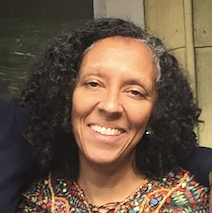Tag Archive: Racial Equity
February 19, 2019

Photo by tracydekalb, “Redbud Love,” shared under provisions of Creative Commons Attribution license 2.0.
The following post was originally published in 2014, and has been edited. In many ways it feels even more relevant five years later …
Over the past dozen years or so at IISC (our half-life as an organization, and my whole life as a member of this amazing community), we have seen and experienced some interesting progressions. In our Facilitative Leadership for Social Change trainings and consulting work, we talk about the “interior condition” of effective collaborative and network leadership. When I first joined the organization, we used to say that collaborative leaders and change agents embraced an ethic of “service, authenticity and respect.” Then we made the move of changing “respect,” which came across to some as a bit weak, to LOVE. For the first couple of years after making this switch, when we asked “What’s love got to do with it?” with respect to effective leadership and work for social change, there were definitely some uncomfortable silences. Some participants would ultimately want to rename love as “respect” or “passion.”
Then in 2009 we started noticing a change. More heads nodded in rooms when we mentioned the “L-word,” less nervous laughter and shifting in seats. In one particularly striking instance, during a training with health care and public health professionals, a senior and very respected physician responded,
“What’s love got to do with it? Everything! Beyond my technical skills, I am effective in so far as I am able to really see my patients, students, and colleagues, to make them feel seen for who they are.”
Read More
January 15, 2019
“We are the living conduit to all life. When we contemplate the vastness of the interwoven network that we are tied to, our individual threads of life seem far less fragile.”
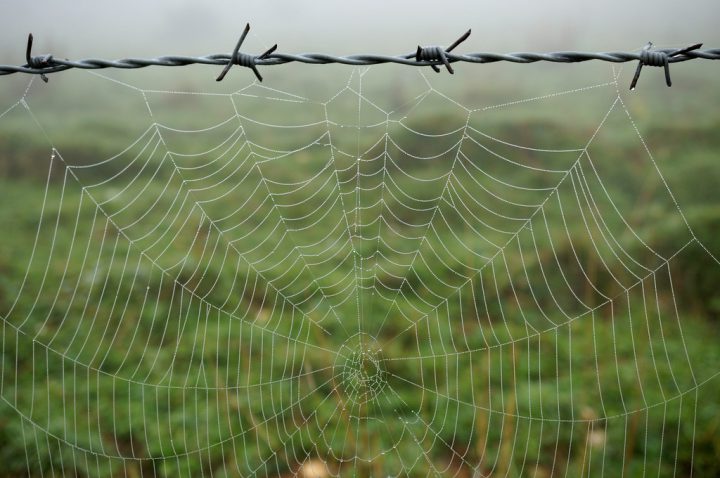
Photo by Marie Voegtli, “network” shared under provisions of Creative Commons Attribution License 2.0.
Last week, we wrapped up the third annual Food Solutions New England Network Leadership Institute. For three years, we have been partnering with FSNE to cultivate and connect people in this region where IISC is based, who are committed to supporting the emergence of just, sustainable, collaboratively stewarded and self-determined food futures for all who live here. This network and leadership development initiative grew out of system mapping that FSNE undertook to identify four main areas of leverage to shift extractive, oppressive, oligarchic and life-depleting patterns of the dominant food system.
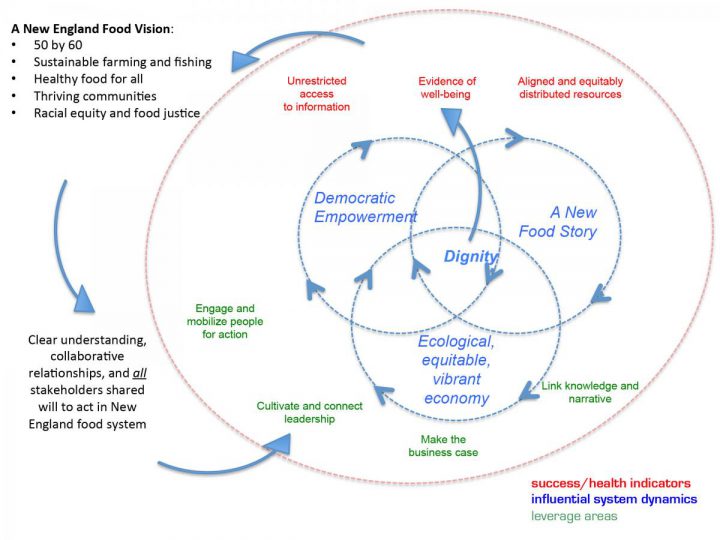
From the start, we and our partners at FSNE (including the backbone team at the University of New Hampshire Sustainability Institute, the FSNE Ambassadors, and members of the FSNE Process Team) knew that the main value of any kind of leadership development program would be in the people that came together and the relationships they built with one another. From there, we were interested in creating opportunities for those involved in the program to cultivate connections with other values-aligned change agents in the region. In addition, we looked at giving people an experience of different and diverse places in our region (rural, urban, coastal) and to see their work in a regional context. Lastly, we wanted to offer an opportunity for participants to hone their skills as collaborative/network leaders and equity champions.
Here is our working and ever-evolving definition of network leadership:
Network leadership operates from the understanding that connection and flow is fundamental to life and liveliness and that the nature and pattern of connection in a system underlie its state of health (including justice, shared prosperity and resilience). Network leadership strives to understand, shift and strengthen connectivity; facilitate alignment and resource flows; and create conditions for coordinated and emergent action in the direction of greater health and belonging at different systemic levels.
Read More
May 14, 2018
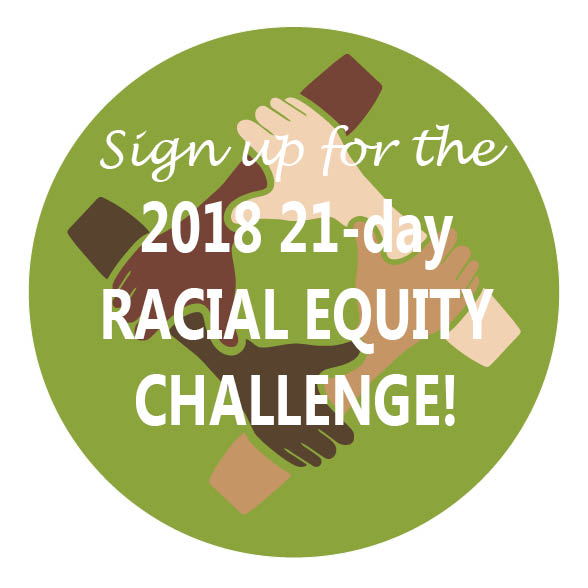 On April 22nd, the fourth annual 21 Day Racial Equity Habit Building Challenge wrapped up. This project with Food Solutions New England was originally conceived as a “network innovation” to spread and deepen the conversation about and commitment around addressing race and racism in food and related systems. This year the organizing team sought to go deeper, noting how much the national conversation has evolved in the past year. And we were heartened by the numbers (over 3,000 people from all 50 states and parts of Canada signed up) and by the quality of the conversation on-line and in different in-person venues where we met people who were participating. Certainly no one is under the illusion that the Challenge is enough, but we have heard that it is changing the way many see their work in food systems. Below you will find some of what was generously offered on-line in response to the daily email prompts and associated resources (readings, videos, audio clips).
On April 22nd, the fourth annual 21 Day Racial Equity Habit Building Challenge wrapped up. This project with Food Solutions New England was originally conceived as a “network innovation” to spread and deepen the conversation about and commitment around addressing race and racism in food and related systems. This year the organizing team sought to go deeper, noting how much the national conversation has evolved in the past year. And we were heartened by the numbers (over 3,000 people from all 50 states and parts of Canada signed up) and by the quality of the conversation on-line and in different in-person venues where we met people who were participating. Certainly no one is under the illusion that the Challenge is enough, but we have heard that it is changing the way many see their work in food systems. Below you will find some of what was generously offered on-line in response to the daily email prompts and associated resources (readings, videos, audio clips).
History of Race and Racism in the Food System: What is the history you hold in your head (and heart and body) about our current food systems?
“In my work at a non profit in the ‘good food’ movement, we constantly use language like ‘fix the broken food system.’ Reading these pieces on the historical underpinnings of racism in our food system illuminated for me just how much that statement (almost a throw away now) is situated within a racial caste system. To presume that ‘we’ must ‘fix’ a system ignores (by not naming) the racism present in that system. It lumps the goals of racial and food justice in with other, non-racialized issues (like soil health) also plaguing our current system, thereby continuing to perpetuate injustice through silence.”
“The consistent glorification of a food system, broken or fixed, imagined or real, that has systematically ignored the people that make it function, throughout the past and yet still in the present, is something I think I unknowingly participate in. Will naming this, calling it out, help us to change the structural racism that fuels this reality? How? I hope that by learning, studying, reflecting, and communicating that this group can indeed be somehow change-making, but it’s challenging to see a positive horizon when the change to be had is so large and primarily resides in legal, political and social institutions and structures. Forgive me for being still inside a state of feeling overwhelmed.”
The Colonization of Indigenous Land Rights and Food Ways: How does colonization continue to exist in our food systems and how can you support decolonization and celebrate indigenous rights and food ways?
“I just finished listening to The True History & Foods of Thanksgiving. My immediate reaction is shock and shame. I accepted Thanksgiving as an American celebration without ever wondering about its history. The podcast is a great conversation that educated me about how interwoven food, land, location, spirituality and culture are for some traditions within Native Americans. I wish we treated our lands and environment with the same care that many people were able to do before they were colonized.”
“In my state, treaties still continue to be broken with Native American communities, the most recent agreement being broken in 2015. State programs aimed to “help” are rooted in white supremacist ideologies. I think of Audrey Lorde when she declared, “For the master’s tools will never dismantle the master’s house. They may allow us to temporarily beat him at his own game, but they will never enable us to bring about genuine change. Racism and homophobia are real conditions of all our lives in this place and time. I urge each one of us here to reach down into that deep place of knowledge inside herself and touch that terror and loathing of any difference that lives here. See whose face it wears. Then the personal as the political can begin to illuminate all our choices.”
Read More
October 2, 2017
“We cannot live for ourselves alone. Our lives are connected by a thousand invisible threads, and along those sympathetic fibers, our actions run as causes and return to us as results.”
– Herman Melville
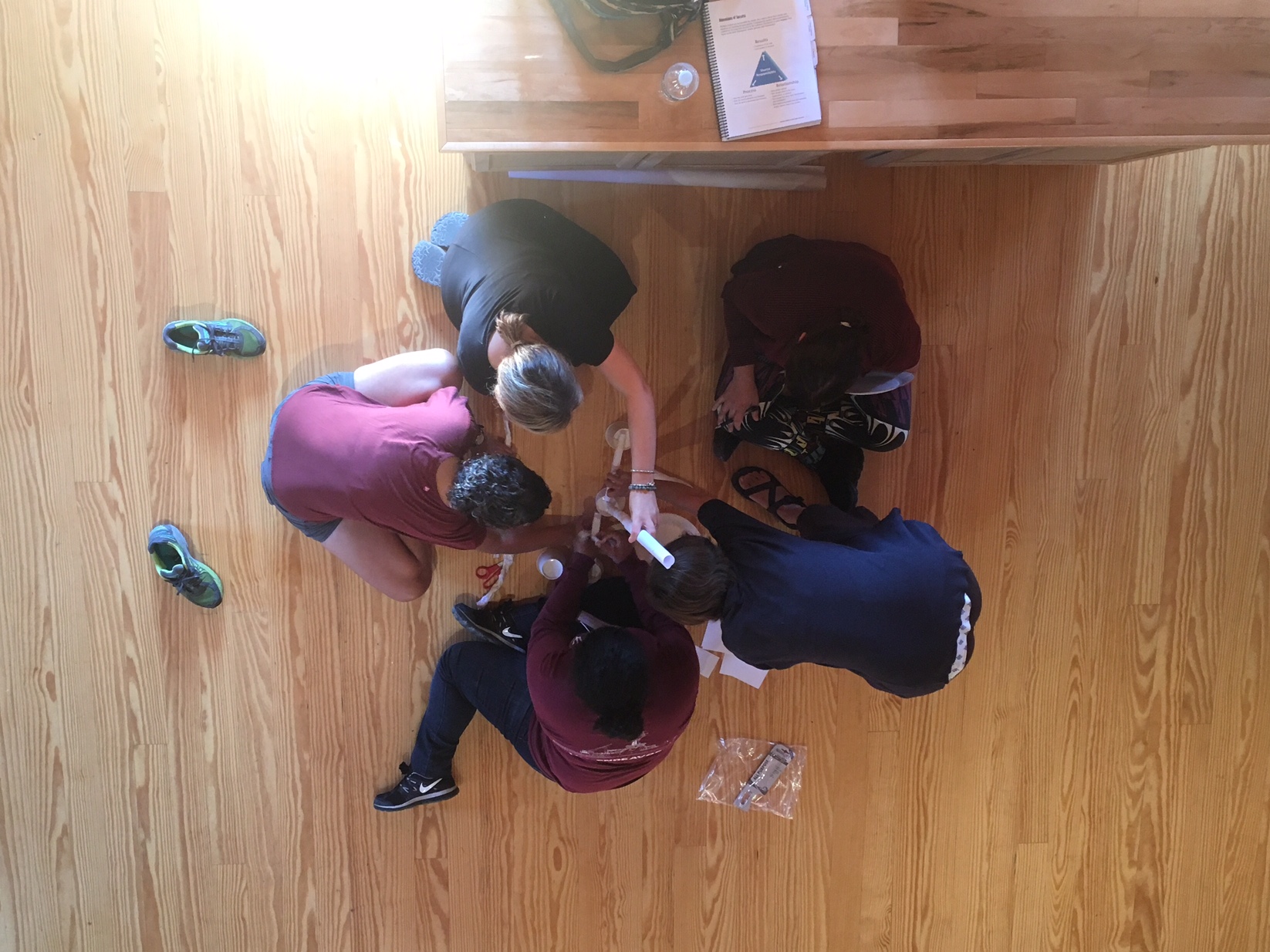
2017-2018 NLI cohort members engage in a team building exercise focused on the dimensions of collaborative success.
Last week I worked with the Backbone Team of Food Solutions New England to launch the second cohort of the Network Leadership Institute (NLI) at Ohana Camp in Fairlee, Vermont. This initiative has grown out of FSNE’s commitment to cultivating both thought leadership and network leadership “to support the emergence and viability of a New England food system that is a driver of healthy food for all, racial equity, sustainable farming and fishing, and thriving communities.” Another impetus for the NLI was a year spent doing system mapping and analysis that revealed four leverage areas for advancing a just, sustainable and democratically-owned and operated regional food system, including cultivating and connecting leadership (see image below). Read More
June 13, 2017
“Life moves toward other life… If we trusted more in these cohering motions, we could move into an essential role … supporting the system to explore new connections, new information, new ways of being. It means focusing on opening the system in all ways.”
Margaret Wheatley and Myron Kellner-Rogers, a simpler way
“Bridging” in the work of network development speaks to the act of creating connections between socially heterogeneous groups (or putting it a bit more crassly, building bridges between “us” and “them”). The benefits of bridging include making it possible for diverse groups to share and exchange information, creating new forms of access, as well as leveraging new ideas and spurring innovation between groups representing different interests and/or backgrounds. Bridging widens social capital by increasing the “radius of trust.” Unlike “bonding,” or more in-group relationship building (think “birds of a feather flocking together”), bridging can help create more inclusive structures that can have implications for long-term resilience and more equitable development. The following is a story of a network engaging in intentional bridging work for more robust connectivity, flows and opportunity …
Food Solutions New England (FSNE) is a regional, collaborative network organized to “support the emergence of a New England food system that is a resilient driver of racial equity and food justice, sustainable farming and fishing, and thriving communities.” FSNE is convened by For the past 5+ years, IISC has worked with the convening “backbone organization,” UNH Sustainability Institute, to launch and structure itself as a formal network, as well as to concretize and evolve its core commitment to racial equity as it has become more diverse and inclusive and worked for systemic change.
Eighteen months ago, FSNE was faced with making a decision about where to hold its annual Food Summit. The Summit was originally conceived to bring together delegates from across New England to strengthen collaboration for regional food system sustainability. The commitment was made early on by the convenor to move the Summit around the region, holding it in each of the six New England states once before going to any of them for a second time.
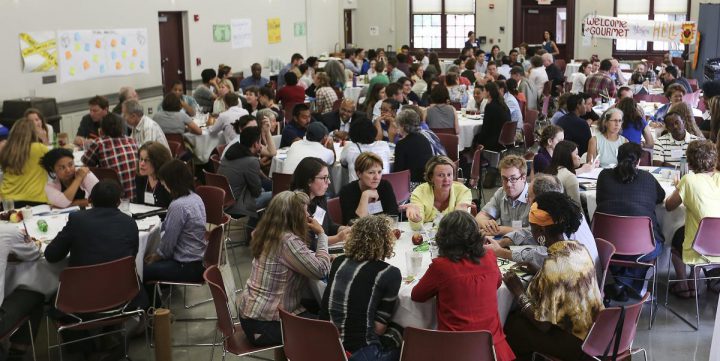
Delegates to the 2015 New England Food Summit gathered in Boston, MA.
In 2016, Connecticut was the last state to host the New England Food Summit. The network’s backbone organization was faced with a decision about the specific location within the state. Previous Summits had been held in prominent hubs in the other states – Portsmouth (NH), Burlington (VT), Portland (ME), Pawtucket/Providence (RI) and Boston. While places like Hartford and New Haven might have been natural considerations given their respective amenities and relative centrality in the state, the choice was made to bring the Summit to Bridgeport. This decision was spurred in no small part by the leadership of State Senator Marilyn Moore, who hails from that city and is a member of the FSNE Network Team. Senator Moore pointed out that not only would it be significant for Bridgeport to play host, given it is often overlooked in favor of its more well-known and regarded neighbors, it would also be enlightening for Summit delegates to see reality on the ground. Furthermore, this choice was viewed as an expression of FSNE’s commitment to racial equity and food justice.
Read More
May 8, 2017
“Clearly, we made some people uncomfortable. Good. For too long, our comfort has come on the backs of many who have been uncomfortable for a long, long time.”
–Niaz Dorry, FSNE Process and Network Team Member
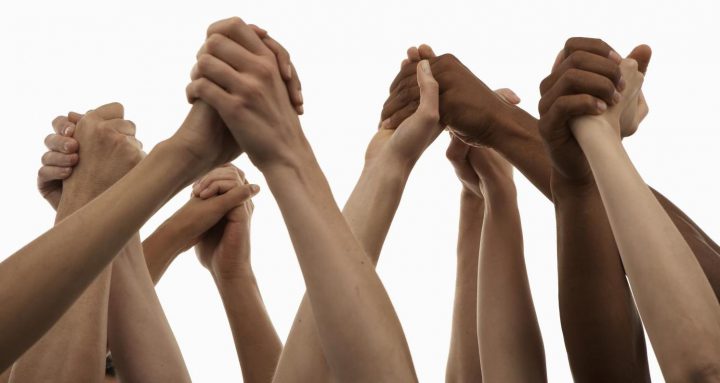
Food Solutions New England (FSNE) is a regional, collaborative network organized to “support the emergence of a New England food system that is a resilient driver of racial equity and food justice, sustainable farming and fishing, and thriving communities.”
For the past 5 years, IISC has supported FSNE to launch and structure itself as a formal network, as well as to concretize and evolve its core commitment to racial equity as it has become more diverse and inclusive and focused on systemic transformation. Over the winter, editorial staff from the Othering and Belonging Journal at the Haas Institute for a Fair and Inclusive Society solicited an article submission from FSNE to tell the story of why and how the network has operationalized its commitment to racial equity and food justice.
“While Othering processes marginalize people on the basis of perceived group differences, Belonging confers the privileges of membership in a community, including the care and concern of other members. As [john a.] powell has previously written, ‘Belonging means more than just being seen. Belonging entails having a meaningful voice and the opportunity to participate in the design of social and cultural structures. Belonging means having the right to contribute to, and make demands on, society and political institutions.'”
–Andrew Grant-Thomas, from Othering and Belonging Editors’ Introduction
The article was published last week under the title “Equity as Common Cause,” co-authored by El Farrell, Tom Kelly and Joanne Burke of the UNH Sustainability Institute (the convenor of FSNE), Karen Spiller of KAS Consulting and the Albert Schweitzer Fellowship (Karen is lead FSNE Ambassador) and myself, as network facilitator, with input and voices of many others, including Connecticut Senator Marilyn Moore, Julius Kolawole of the African Alliance of Rhode Island and Niaz Dorry of North Atlantic Marine Alliance. Read More
July 21, 2016
The tagline of the Black Lives Matter movement is “Free from violence. Free from oppression. Free to be our full selves. Free to love. Freedom Now.” Their rallying cry is a powerful quote from Assata Shakur. “It is our duty to fight for our freedom. It is our duty to win. We must love each other and support each other. We have nothing to lose but our chains.”
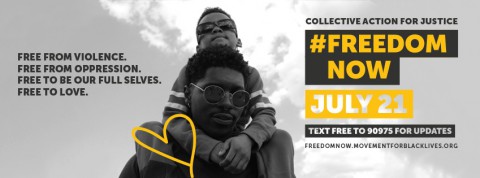
The past few weeks have reminded me that loving and supporting each other requires us not only to fight but also to mourn together. There are opportunities around us every single day. The recent shootings of police, alongside the seemingly endless list of black and brown civilians shot by police, seem to have awakened the nation in a new way. That is good, as long as we can “stay woke” long enough to do something meaningful. Still, I can’t help but wonder what hushed and gentle conversations we’d be having on television and in communities, workplaces, and houses of worship without the deaths of the police officers. Isn’t the almost daily murder of black and brown people enough to cause somber reflection? Aren’t the calls for action coming from grieving families, activists, celebrities, athletes, and everyday folks enough to make and sustain meaningful change?
Read More
July 1, 2015
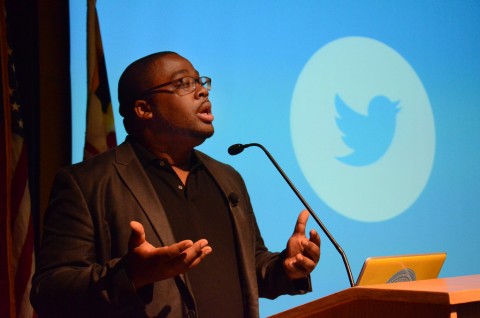
Photo by NASA Goddard
Last week I had an interesting conversation with an evaluator who was curious about some of the networks for food system development we’ve been supporting through IISC. We got to talking about “metrics,” which led into consideration of the role of story in not simply gauging network effectiveness, but also in stimulating network evolution. Communication and social learning are part of the life-blood of human networks. This is something that we’re coming to understand at a more profound level amidst the complexity of food system transformation work at all levels.
As we try to identify “leverage points” to shift regional food system dynamics in New England in the direction of increased local production, food security, economic development, resiliency and equity across the board, we are realizing that more robust connectivity and sharing across boundaries of many kinds is a significant strategy and form of structural change that can allow for critical self-organization and adaptation. Stories become one of the critical nutrients in this work.
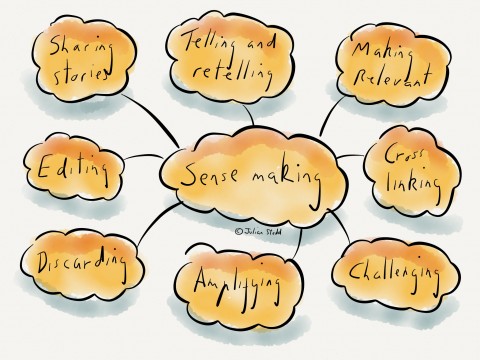
For example, as much as we have begun to share data, and importantly disaggregated data, across the region, we have found that stories often have more stickiness and staying power. The stories that were shared at last year’s Food Solutions New England (FSNE) Food Summit about racial equity and white privilege have been referenced for their impact in creating an environment of genuineness, that have spurred others to speak up and take up the conversation about the reality of structural racism in our food system. This has in turn brought more trust and diversity to the network, which has helped to create a more comprehensive understanding of the food system and possibilities for decentralized and more formally coordinated network action.
Furthermore, we have begun to solicit stories of success and innovation around embracing the FSNE Vision (of 50% self-sufficiency with regards to regional food production by the year 2060) and racial equity commitment. And coming out of this year’s Summit, there is interest in sharing stories of how people are working towards “fair price” across the food chain, in such a way that food workers, producers of varying scales, distributers and consumers have living wages and access to health-promoting and culturally diverse food. The curation of these stories we see as beginning to change the underlying economic narrative.
Stories then become fuel in many ways, providing different points of access, connection, inspiration, education, and meaning-making. Stories are like enriched compost that can be fed back into the network to nurture new growth. Our work as a Network Team, as network gardeners, is to “close the resource loop,” encourage and support more equitable channels for expression, more cross-fertilization, more interest in diverse (and concealed) stories and “processing venues” for these (virtual and in-person).
How are you using story to feed your net work forward?
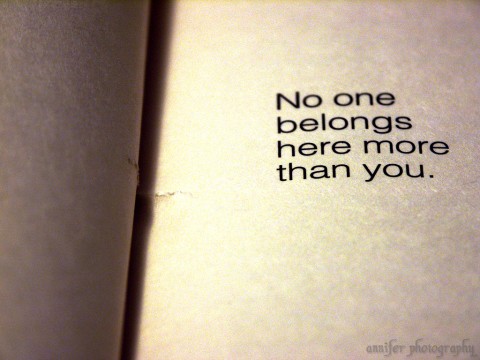
June 17, 2015
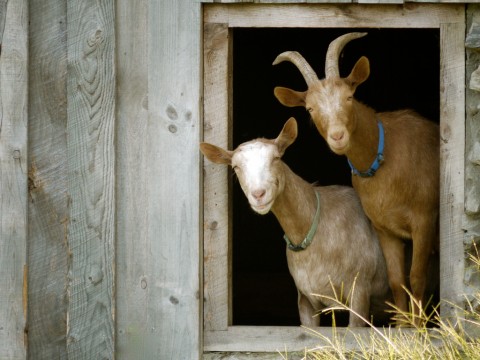
Photo by Rebecca Siegel
Still fresh on the heels of the 5th annual Food Solutions New England Regional Food Summit, many attendees seem to be buzzing about the two days of conversation in Boston that focused on the 2060 Vision, racial equity commitment, food chain workers campaigns, and the challenge of creating “fair price” across the food system. It was my privilege to facilitate for a third year, and to help set the tone for the evolving spirit of regionalism and ongoing work of network building. I opened with the following story, which some of you may know well, and comments. Read More
March 5, 2015
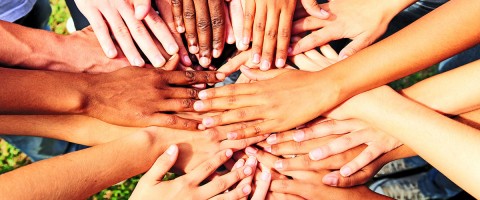
Two years ago, the Food Solutions New England (FSNE) Network Team, with support from IISC, committed to putting racial equity at the center of its work in trying to bring the six state region together around a vision of a more sustainable food system. Since formalizing that commitment with more than 150 delegates at last year’s annual Food Summit, and taking it to other food system-focused networks by invitation, the FSNE Network Team has faced the big question – Now what? How to deliver on this commitment and in a regional context? At the very least we continue to deepen our learning around and commitment to equity, modeling for and learning from and with others, growing and strengthening our understanding and action. A sub-committee of the Network Team, of which IISC is a part, has put together a racial equity plan consisting of various areas of activity, including education, communication, convening, network weaving/organizing and curating tools and resources for food system advocates at all levels (organizational, community, municipal, state).
One step that has just been launched is a bit of an experiment, and takes the 21 Day Racial Equity Habit Building Challenge from Debbie Irving (author of Waking Up White) and Dr. Eddie Moore, Jr. (founder of the White Privilege Conference), and turns it into a virtual community of practice. The ongoing challenge of the Network Team is to figure out a variety of means to keep knitting the network, and to keep communication and learning flowing. This is where the proliferation of social media tools and collaboration platforms has been extremely helpful. Read More
July 24, 2014
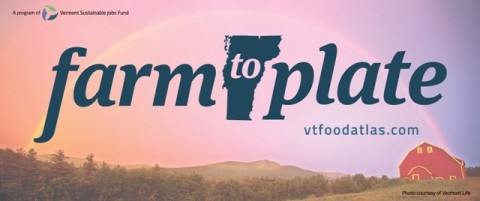
The following article appeared in an email newsletter from the Vermont Farm to Plate Network (VTF2P) one of IISC’s clients in network and collaborative capacity building. The author is Beth Cullen, co-chair of the Farm to Plate Consumer Education & Marketing Working Group and owner of Root Consulting, who attended the New England Food Summit that Cynthia Parker and I helped to design and facilitate. It is great to see the power of that two day convening and conversation continuing to ripple out into the region. VTF2P plans on integrating the conversation about equity into their upcoming October convening . . .
New England Food Summit targets social justice to drive change in the food system
The 4th Annual New England Food Summit, organized by Food Solutions New England, convened over 110 delegates in June to discuss racial equity and food justice in the region. Summit organizers unveiled the New England Food Vision, a regional aspiration to locally produce at least of 50 percent of the fresh, fair, just, and accessible food consumed by New Englanders by 2060.
Read More
July 8, 2014

Photo by Leland Francisco
Over the past 8 years at IISC I have seen and experienced some interesting progressions. When I first joined the organization, in our Facilitative Leadership trainings, we talked about the “interior condition” of effective collaborative leaders. At the core we mentioned that these leaders and change agents embraced an ethic of “service, authenticity and respect.” Then we made the bold move of changing “respect,” which came across to many as a bit weak, to LOVE. For the first couple of years after making this switch, when I asked “What’s love got to do with it?” with respect to effective leadership and work for social change, there were often uncomfortable silences. Some participants would ultimately want to reframe love as “respect” or “passion.”
Then in 2009 I started noticing a change. More heads nodded in rooms when I mentioned the “L-word.” Less nervous laughter and shifting in seats. In one particularly striking instance, during a training with health care professionals in Maine, a senior and very respected physician responded,
“What’s love got to do with it? Everything! Beyond my technical skills, I am effective in so far as I am able to really see my patients, students, and colleagues, to make them feel seen for who they are.”
Read More




 On April 22nd, the fourth annual
On April 22nd, the fourth annual 



